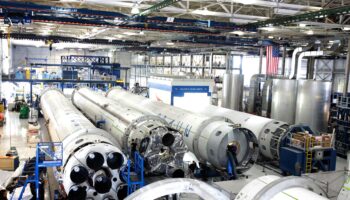The global automotive landscape is undergoing a profound transformation, and at the forefront of this revolution is China. As the world’s largest automotive market and a hub of innovation, China’s influence is reshaping the industry in ways that extend far beyond its borders. From electric vehicles (EVs) to technological advancements, China’s automotive journey is set to have a profound impact on other countries and the industry as a whole. Let’s explore the china’s impact on the global automotive industry and its ramifications.
The Rise of Electric Mobility
China’s commitment to electric mobility has catalyzed the adoption of electric vehicles on a massive scale. Through Government incentives, stringent emissions regulations, and investments in charging infrastructure, China has positioned itself as a global leader in EV production and adoption. The shift toward electric vehicles reduces pollution and dependence on fossil fuels prompting other countries to accelerate their own EV strategies.
Innovations in Autonomous Driving
China’s technological prowess extends to autonomous driving, with the nation investing heavily in research and development. Companies like Baidu and Pony.ai are at the forefront of self-driving technology, and China’s vast market provides ample opportunities for testing and refining these innovations. As autonomous vehicles become safer and more reliable, the impact will fall globally, prompting discussions on regulations, safety standards, and the future of transportation.
Manufacturing Powerhouse and Supply Chain Implications
China’s manufacturing capabilities are legendary, and this prowess extends to the automotive sector. The country’s efficient supply chain, skilled workforce, and cost-effective production processes have made it a manufacturing hub for domestic and international automakers. This dependence on China for manufacturing has led to discussions about diversifying supply chains and reducing potential vulnerabilities.
The Shift in Industry Leadership
China’s rapid growth in the automotive sector has positioned it as a contender for industry leadership. Domestic companies like BYD, NIO, and Geely are gaining prominence in their home market but also internationally. China’s emergence as a key player challenges the dominance of traditional automotive powerhouses, reshaping global industry dynamics.
Environmental and Geopolitical Implications
China’s push for cleaner transportation aligns with global environmental goals, helping mitigate the impact of transportation-related emissions. This shift has led other nations to reevaluate their policies, explore EV incentives, and invest in green infrastructure. However, China’s increasing influence also raises concerns about the geopolitical dynamics of the automotive industry as nations seek to balance economic partnerships with security considerations.
Collaboration and Competition
While China’s rise has led to it has also fostered collaboration. International automakers are partnering with Chinese counterparts to tap into the market’s potential and share technology. Simultaneously, China’s automotive ambitions have prompted other countries to ramp up research, innovation, and policy development to remain competitive.
Global Economic Ripple Effects
China’s automotive ascendancy has economic ripple effects that extend beyond the industry. The nation’s demand for raw materials, EV batteries reshape global resource markets. Additionally, China’s status as a Major automotive market means that shifts in consumer preferences and purchasing power impact automakers worldwide.
Conclusion
China’s transformative impact on the global automotive industry is a testament to the country’s technological prowess, strategic vision, and commitment to sustainable transportation. As China leads the charge in electric mobility, autonomous driving, and manufacturing capabilities, other countries are compelled to adapt, innovate, and collaborate to remain relevant in this evolving landscape. The ripple effects extend to environmental sustainability, economic dynamics, and geopolitical considerations, marking China’s journey as a driver of change that transcends national borders. The automotive industry’s metamorphosis in the wake of China’s influence serves as a harbinger of the future of transportation on a global scale.
- THE EVOLUTION OF PLASTIC SURGERY - 17 June 2024
- CHOOSE THE RIGHT PERSONAL INJURY LAW FIRM IN CHARLOTTE NORTH CAROLINA - 16 June 2024
- Email UX optimization, offering actionable insights - 16 June 2024






1 Comment